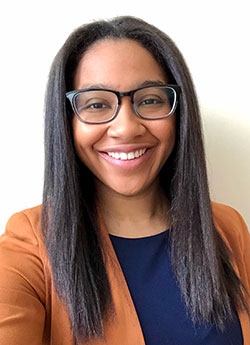Holmes awarded HHMI fellowship for promising early-career scientists
Postdoctoral virologist receives multiyear support to launch own research program

Holmes
Virologist Autumn Holmes, PhD, a postdoctoral researcher at Washington University School of Medicine in St. Louis, has been named a Hanna H. Gray Fellow by the Howard Hughes Medical Institute (HHMI). The fellowship provides up to $1.4 million over eight years to outstanding early-career scientists. Its aim is to help those with the potential to solve major challenges in the life sciences make the transition to becoming principal investigators.
Holmes’ research focuses on finding new therapies for emerging infectious diseases such as chikungunya. Transmitted by mosquito bite, chikungunya virus causes debilitating, often chronic arthritis in people. While chikungunya is still mostly confined to tropical parts of the planet, the mosquito species that carry the virus are likely to expand their range over the next few decades due to climate change.
Working with Michael S. Diamond, MD, PhD, the Herbert S. Gasser Professor of Medicine, Holmes is examining how chikungunya virus enters cells and begins the infection process in mice. She hopes to understand how certain infected cells affect the progression of chikungunya disease and how the virus operates in the early stages of infection.
Before joining Diamond’s lab, Holmes studied how rhinoviruses — a cause of the common cold — take advantage of a particular human protein to cause disease. She explored whether inhibiting this protein could help treat infections in people at risk of getting seriously ill from the common cold, such as people with asthma or chronic obstructive pulmonary disease.
The Hanna Gray fellowship is designed to promote academic faculty diversity by supporting promising early-career scientists from underrepresented backgrounds. Along with funding, the program offers fellows the opportunity to connect with each other and HHMI Investigators during annual science meetings and other events.






